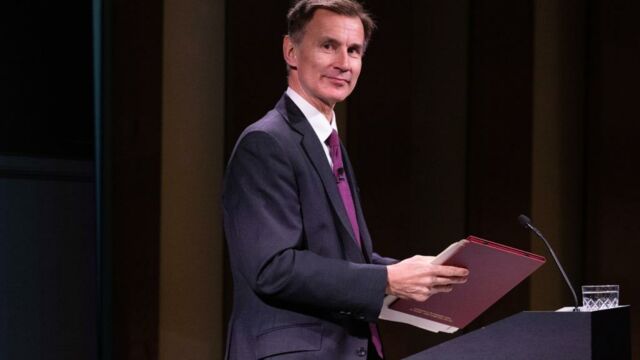Today’s speech will be Jeremy Hunt’s second budget speech since he was appointed as Chancellor of the Exchequer in October 2022. His last statement was in November 2022 when he announced the government was backtracking from his predecessor’s reforms which supposedly would have been devastating for the British economy.
Discover our latest podcast
He gave more details to Prime Minister Rishi Sunak’s five pledges for 2023, announced in January, three of which directly involved the British economy. The PM said he wanted to cut inflation in half, grow the economy by creating better-paid jobs, and reduce the UK’s debt.
Inflation-wise, the Bank of England has forecast a cut in half during the year already, so the Chancellor might focus on the other two points. The Bank of England forecast shows a drop in inflation from 10,7% today to 2,9% by the end of 2023.
The Chancellor may go against Tory MPs and the IMF
Despite pushes from Tory MPs, Hunt did not announce any tax cuts today.
Although the International Monetary Fund (IMF) has said the UK may be the worst of the G7 countries on the financial side in 2023, because of its financial situation at the moment, Hunt is not expected to change his original plans for the Spring Budget. The Chancellor’s initial plan is to raise taxes and limit spending to keep inflation under control before 2024, despite the raging cost of living crisis happening in the UK at the moment.
An SNP member in the House of Commons reminded the Chancellor of the Exchequer that Britain is the only G7 country that is still poorer than it was before the Covid-19 pandemic.
Chris Etherington, a tax expert at accountancy firm RSM, has said:
Tax cuts may yet be announced in the spring Budget, but it seems likely these will be long-term promises that are unlikely to provide any immediate relief for taxpayers.
In line with the government’s plan to get more people into the workforce, which Sunak announced earlier this year, the Chancellor also announced plans to inject money to create more and better-paid jobs. He estimated that 2 million disabled or ill people are not working and wish to work. He mentioned Zoom to argue that disabled people can work remotely.
Ahead of Jeremy Hunt's budget, British businesses have a lot on their mind
— Bloomberg UK (@BloombergUK) March 15, 2023
Labour's Pat McFadden says many companies are "still concerned with the post-Brexit trading environment" https://t.co/OH6qRQCp86pic.twitter.com/9wXAcZH78r
Read more:From worker to teacher strikes, here's everything you can expect in the week of 13 February
Good news?
Hunt has given out some good news too. The government will extend its support for energy bills until June 2023 to help households pay their energy bills in the cost of living crisis. According to iNews, energy companies have been asked by the government to prepare the Energy Price Guarantee (which caps household energy bills at £2,500 a year for now) to be extended for the next three months, instead of going up to £3,500 a year after 1 April, as was originally planned. However, during Questions to the Prime Minister in the House of Commons, a member of the SNP said that Scottish households' energy bills are not capped, and the average energy bill in Scotland in £3,500.
In terms of petrol, the government’s relief of 5p per litre will continue in the following months. According to Jeremy Hunt, freezing fuel duty will save the average driver £100 next year.
Energy help that caps average UK bill at £2,500 a year extended until end of June
— BBC Breaking News (@BBCBreaking) March 15, 2023
Follow live Budget coverage https://t.co/A9ICO4M8FO
Read more:Rishi Sunak facing backlash after being caught breaking the rules yet again
The impact of ongoing strikes
Strikes have been going on for months in the country, especially in public sectors. Many people demand a raise in their salaries, but the government has said it can only afford a 3.5% rise in public sector salaries, which is a lot less than what workers are asking for. The Chancellor ended his speech with the following phrase:
We stick to the plan because the plan is working.
In the House of Commons, the Prime Minister condemned the Tube strikes and blamed them on London mayor Sadiq Khan.
500,000 workers on strike today
— NHS Nurses (@SocialistNHS) March 15, 2023
Will the Government still try to blame the workers for this mess?
If you support all striking workers please reply with a 💙#Strikes#BudgetDay2023
Read more:£400 offered to hundreds of thousands to help with energy bills, check if you qualify
Sources used:
INews: What time is the Budget 2023 today? When to watch Jeremy Hunt’s announcement live and latest predictions
UK Gov: Prime Minister outlines his five key priorities for 2023
CityAM: Explainer: Sunak's plan to grow the workforce















